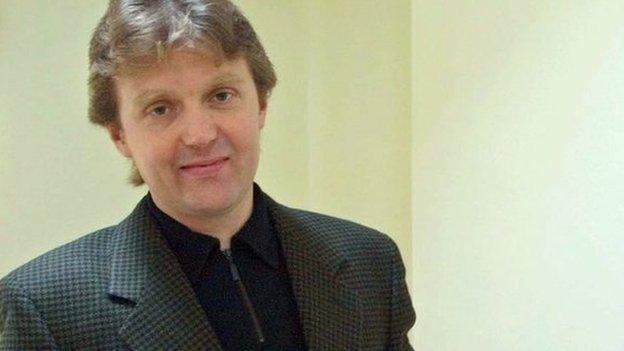Litvinenko inquiry: Radioactive traces 'found on plane'
- Published
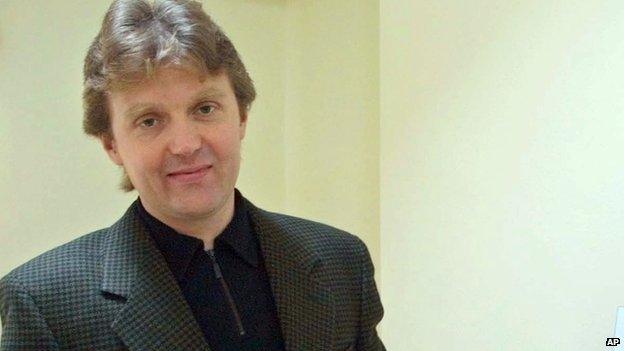
Alexander Litvinenko died three weeks after he consumed tea laced with polonium-210
Radioactive contamination was detected on a plane used by two men suspected of poisoning former Russian spy Alexander Litvinenko, an inquiry has been told.
Metropolitan Police detectives found traces of polonium-210 on the plane, travelled on by suspects Andrei Lugovoi and Dmitri Kovtun in 2006.
The discovery came despite reassurances from the Russian authorities that the plane was not contaminated.
The duo, who remain in Russia, deny any involvement in Mr Litvinenko's killing.
Mr Litvinenko, a former officer of the Russian security service and an MI6 "consultant", fled to the UK in 2000. He died nearly three weeks after drinking tea laced with polonium at a hotel in London in November 2006.
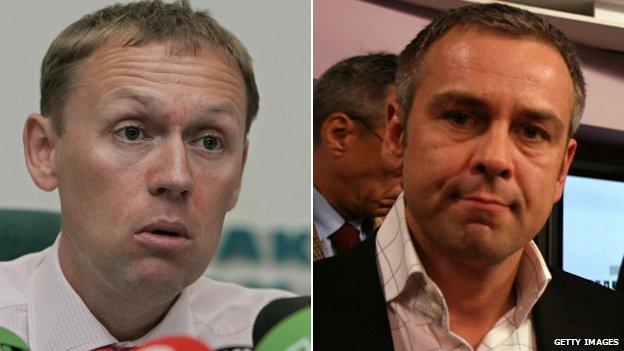
Andrei Lugovoi and Dmitri Kovtun deny any involvement and remain in Russia
The 43-year-old may also have been poisoned in October that year following a meeting with the suspects at a private security firm in Mayfair, central London, the public inquiry into his death has previously heard.
Det Insp Craig Mascall, from the Metropolitan Police's counter-terrorism unit, said traces of polonium were found on the Moscow to London plane travelled on by Mr Lugovoi and Mr Kovtun on 16 October for the meeting.
The men flew back to Russia two days later, the inquiry heard,
After Mr Litvinenko's death, detectives attempted to test the planes for radioactive contamination.
Through contacts at the British Embassy in Moscow, Scotland Yard was told by senior staff at Transaero airline and Russia's chief public health officer that the inbound and outbound planes had tested negative for radiation, the inquiry heard.
But after police grounded one of the planes in the UK, they detected traces of polonium-210.
The Russian authorities then grounded the other plane in Moscow, but British detectives have never been able to examine it for contamination, the inquiry heard.
In 2013, the inquest then being held into Mr Litvinenko's death received a report from the Russian authorities, which suggested that radiation contamination was detected in the economy class cabin of the other plane.
'Donkey with a saddle'
Earlier Spencer Scott, who was a detective constable at Gatwick airport in 2006, told the inquiry he stopped Mr Lugovoi and Mr Kovtun as they arrived at the airport from Moscow on 16 October 2006.
Mr Scott said he had not received any prior intelligence but had a "feeling" they would be persons of interest.
Mr Lugovoi told Mr Scott he was in London on business and would be meeting a company called Continental Petroleum.
Mr Scott made further checks as he found the men to be "evasive" about their reasons for visiting the UK.
After about 20 minutes, he gave them leave to continue their journey after confirming they were of no interest to other agencies, such as the police.
Asked why he let them go, Mr Scott said: "I was given advice that I should allow them to go forward."
The inquiry also heard from Goran Krgo, house manager at the Best Western Shaftesbury Hotel in central London, where Mr Lugovoi and Mr Kovtun stayed during the October visit.
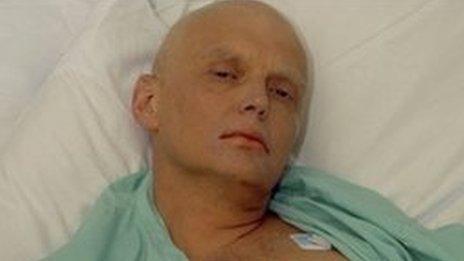
Mr Litvinenko died at University College Hospital
Mr Krgo said he remembered the men "vividly" due to their "comical" clothing and "excessive jewellery".
He told the inquiry he and his colleague started laughing at the men when they emerged wearing "business suits".
"The colours didn't match, the suits were either too big or too small, they didn't look like people used to wearing suits," Mr Krgo said.
"I believe the expression is they looked like a donkey with a saddle."
The inquiry was shown 3D renderings of the hotel rooms the pair stayed in, which showed areas of radioactive contamination detected during the investigation into Mr Litvinenko's death.
Traces were found on the chair, telephone, curtains, bed headrest and door in Mr Lugovoi's room, as well as the tub, sink, mats and toilet in his bathroom.
Radioactive contamination was also found in Mr Kovtun's room.
- Published3 February 2015
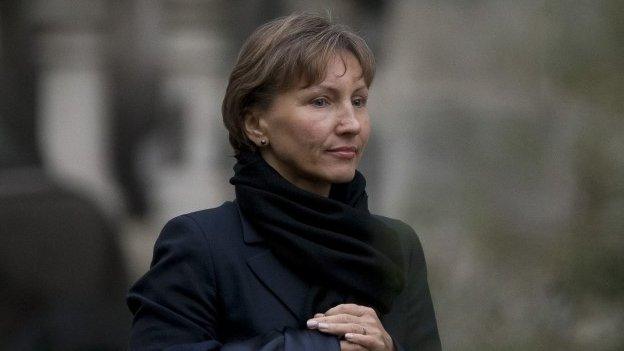
- Published2 February 2015

- Published27 January 2015
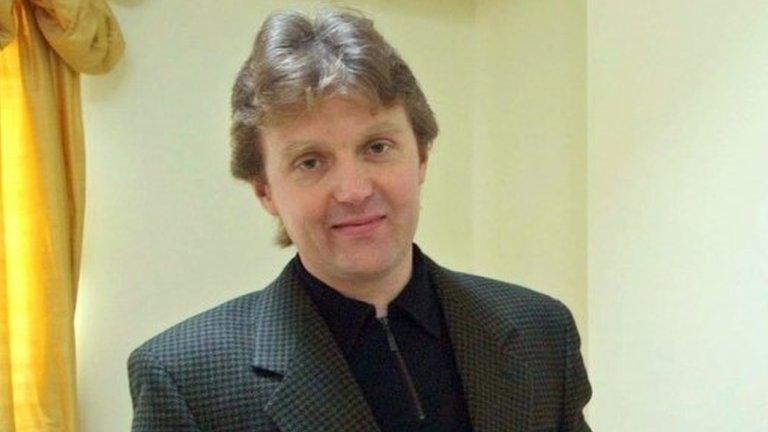
- Published21 January 2016
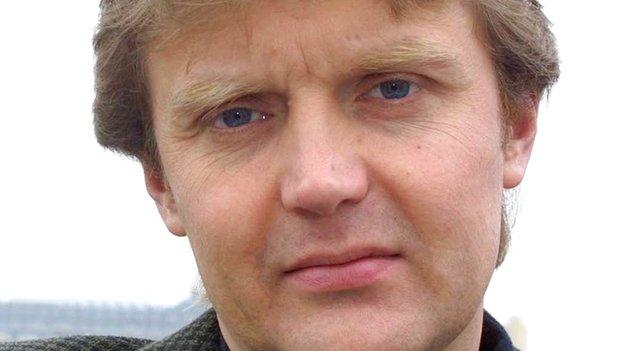
- Published9 February 2015
